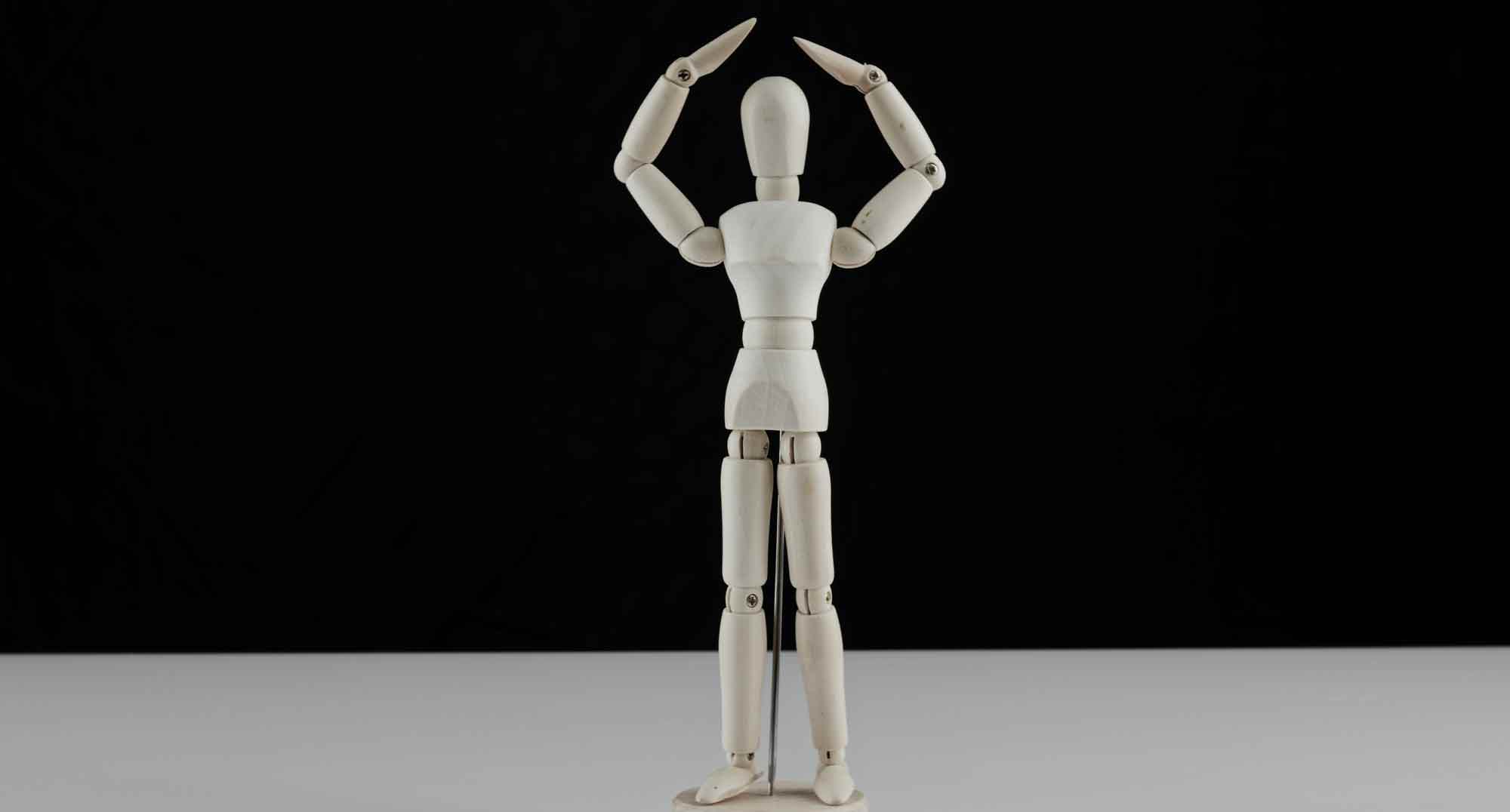TARA GIBBS|CONTRIBUTOR
How often do you think about your body? Constantly? Occasionally? Almost never?
Some of us think about our bodies non-stop, often with shame: “My body is too fat,” “My body is too old,” “My body is too short,” “My body is too this or too that.” “I’ve got to get this body to the gym!” Most of us would agree we don’t need to spend our lives obsessing over whether we have an Instagram-influencer-worthy body, but that doesn’t mean we don’t struggle.
Others of us may think bodies shouldn’t matter. They are earthly “tents” that are passing away, or they are “the flesh” we are to subdue. Perhaps we think our bodies are shameful. Sometimes we might think the solution to our body problems is to realize that bodies are unimportant. But is that what the Bible teaches about bodies?
It can feel confusing to know how God wants us to think about our bodies. What is too much? What is too little? Are bodies spiritual or are bodies unspiritual?
Bodies Are Good Because God Made Them
The Bible states clearly that God made us in his image, and that includes both our spirit and our physical body. In Genesis 1:31 after this last act of creation, he declares what he has made not just “good” but “very good.” (See Gen. 1:26-27, 31.)
The number one argument for the goodness of bodies is that God made them and afterwards declared his work “very good.” He formed our bodies from the physical, earthly medium of dust, then he breathed his Spirit into those dust-crafted bodies (Gen. 2:7). Lutheran theologian John Kleinig captures it well, “We human beings are not just spirits like the angels, nor animated bodies like the animals, but are embodied spirits, or if you will, spiritual bodies. We do not just have bodies. We are bodies”[1] (emphasis mine).
Bodies Created for Noble Purposes
The second thing to remember is God has a noble purpose for our bodies. I encourage you to slowly read Genesis 2 thinking about each detail of the Garden of Eden and considering ways you see God’s creational design for bodies within it. God gave us physical bodies to enjoy and engage the physical world around us: Trees to see, smell, taste, and tend. Rivers from which you can taste cool water. Birds you can hear and flowers you can smell. Read Genesis 2 imagining the richness of colors, tastes, sounds, smells, feelings, and the deep satisfaction of caring well for the Garden and its occupants. Close your eyes and imagine what you would feel there and the extreme goodness of bodies in that creational context. Our bodies are made to both enjoy the physical world around us and steward God’s physical blessing to this world (Gen. 1:28, 2:15). How incredible! Bodies are the means of enjoying God’s world and passing on God’s blessings to that world.
Our Bodies Glorify God
Thirdly, our bodies are the way we physically interact with God. The confession asks: What is the chief end of man? Answer: To glorify God and enjoy him forever. [2] Our bodies are the means whereby we receive God’s abundant provision. They are the means whereby we physically demonstrate trust in and thankfulness to God. In the Garden, God not only gave Adam and Eve beauty to enjoy, he also gave them a world to fill and subdue as his ambassadors.
Each day we can use our bodies to physically express our relationship with God—by worship, service, deeds of mercy, and enjoying the blessings of God’s physical world to his glory. You and I can feel God’s pleasure in corporate worship, in partaking of the communion elements, in serving the poor, in plunging our hands into the soil to plant summer vegetables, in going for a walk and feeling the cool breeze, in eating a piece of cake, in hugging a lonely friend, in teaching a child to read—or we can use our bodies to be lazy, selfish, gluttonous, and idolatrous. We honor God’s good gifts with our bodies as we engage this physical world in trusting relationship with him and in celebration of his good gifts. Whether we are serving a shut-in or eating a feast, a great question to ask is, “Am I using my body in praise of God and his abundant blessings to me?”
Our Bodies Bear God’s Image
“Let us make man[a] in our image, after our likeness,” declared the Lord (Genesis 1:26). As we’ve seen, God did not make man just a body—like the animals—or just a spirit like the angels; he made him body and soul in his own image. What could be more dignifying to our bodies than that? Our physical bodies are a part of the way each one of us has been distinctly made to bear God’s image in this world, and we must carry that truth with humility and wonder.
What about Putting the “Flesh” to Death?
If you have read the Bible, all this celebration of the goodness of the body, may raise a question in your mind. What about when Scripture tells us to put to death the desires of the flesh?” (Gal. 5:16) Have we forgotten about those passages? How do we reconcile our understanding of such passages?
The apostle Paul is not using the term “flesh” to express a conflict between our physical bodies and souls but to express our battle with sinful desires that still resist the work of the Spirit within us. The Scriptures are not saying the body is bad. That idea actually has its roots more in Plato or the Gnostic heresies than the Scriptures, but sometimes all of those things get tangled up in our thinking about bodies. Our souls are not better or more valuable to God than our bodies. God made both our body and soul in his image. He delights in his good creation, and we should too.
How often do you celebrate the wonder of God’s goodness in crafting your physical body? When was the last time you praised God for your body and considered how much pleasure he takes in his good creation?
C.S. Lewis says it well, “There is no good trying to be more spiritual than God. God never meant man to be a purely spiritual creature. That is why He uses material things like bread and wine to put the new life into us. We may think this rather crude and unspiritual. God does not: He invented eating. He likes matter. He invented it.”[3]
We live in an age of complicated and often disordered relationships with our bodies informed by many internal and external voices. There is one voice to which we must listen, and that One who created us both body and soul declared his creation “very good.”
Neither our bodies nor our spirits are fully glorified and freed from sin, but they are made by God to glorify him, to enjoy his physical world, to bear his image, and to physically spread his goodness across this world. May we spend less time listening to the voices of shame, judgement, fear, dysfunction and accusation, and more time filling our minds and hearts with what God says about bodies. In a world overwhelmed with body confusion, Christians are those who can hold out a beautiful and true vision of the body. What is the antidote to a 24-hour media cycle filling our minds and hearts with body confusion? It is filling our minds and hearts with Spirit-filled, biblical truth about God’s very good creation design.
“And God saw everything that he had made, and behold, it was very good,” (Genesis 1:31a).
[1] John Kleinig, Wonderfully Made: A Protestant Theology of the Bible. Bellingham, WA: Lexham Press, 2021, 4.
[2] Westminster Shorter Catechism, Question 1
[3] C.S. Lewis, Mere Christianity (1952; Harper Collins: 2001) 63-64.
Photo by engin akyurt on Unsplash

Tara Gibbs
Tara Gibbs is a wife, mother, and writer. She spent 19 years in San Antonio, Texas ministering alongside her husband Tom to the city of San Antonio at Redeemer Presbyterian Church. Tara has authored Bible studies and taught internationally on women’s ministry. Tara and Tom recently moved to St. Louis, Missouri to serve Covenant Theological Seminary where Tom currently serves as president. Tara has parented four children, led Bible studies, practiced hospitality, worked with the San Antonio area public schools, worked in water conservation, and served as Director of Redeemer’s women’s ministry. Tara loves running, reading, everything outdoors, Tex-Mex food, and fall in St. Louis.

